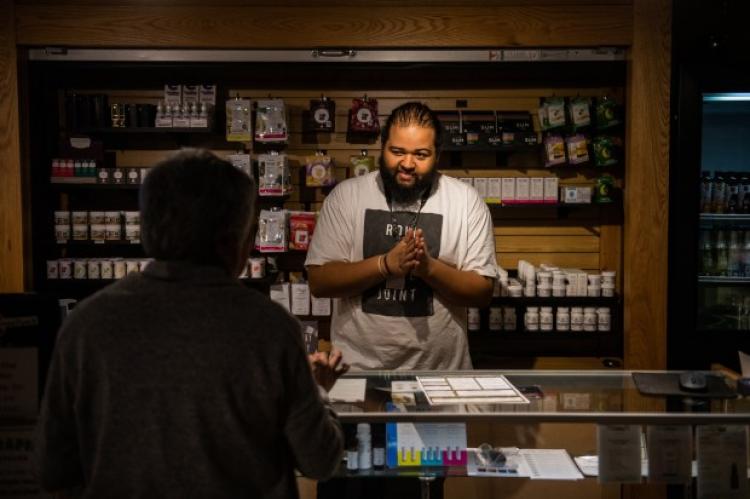How will Denver’s new minimum wage impact the marijuana industry?
A recent study suggests many entry-level jobs in cannabis pay less than what the city has mandated, but it’s taxes, not labor costs, that vex big operators
A recent survey of cannabis companies suggests future entry-level employees will see better pay in Denver thanks to a new law that will increase the city’s minimum wage to $15.87 by 2022.
At least one operator is ahead of the curve. Boulder-based Terrapin Care Station this month announced it was establishing a company-wide $15 minimum wage, a figure that will outpace Denver’s incremental increases for the next two years.
“Terrapin wants to lead by example, which is why we are doing this on our own, regardless of what happens with Denver’s minimum wage proposal,” Chris Woods, Terrapin’s owner and CEO, said in a news release 13 days before the Denver City Council adopted the new wage standards.
Vangst, a Denver-based firm that connects cannabis companies and qualified workers, released its 2019 cannabis industry salary guide on Nov. 15. The guide is based in part on a survey filled out by more than 100 of the top cannabis companies in the country, according to Vangst. Thirty-three states and Washington, D.C., have legalized at least medical marijuana for adult use.
Based on the Vangst guide, the national average pay rates for a handful of entry-level jobs would be illegal in Denver come Jan. 1, 2022.
In the retail space, budtenders — the retail workers who greet customers at dispensaries and sell them marijuana and CBD products — make $14.90 an hour on average. Packagers at manufacturing facilities pull in an average of $14.80 an hour and plant trimmers and harvesters make an average of $13.90 per hour, according to the guide.
The salary guide indicates employers in the Denver market should account for a cost of living that is 5.7% higher than the national average when setting pay. In many cases, that’s already happening, according to Vangst officials.
“While we took a pulse on entry-level cannabis jobs across the nation, we did see Colorado wages skew a bit higher than average due to the increased cost of living,” company founder and CEO Karson Humiston wrote in an email. “The entry-level wages vary by position type and range anywhere from $12 to $18 per hour.”
Terrapin Care Station’s wage bump impacts workers in Colorado and Pennsylvania, including in the retail, production and even management wings of the business. The company has six dispensaries, four cultivation facilities and a processing lab located along Colorado’s Front Range, according to a news release. It has one shop in Denver.
While $15 per hour is over the $12.85 minimum wage the takes effect in Denver on Jan. 1 and the $14.77 minimum that kicks in in 2021, its is below what will be required in 2022. Terrapin officials this week emphasized $15 is only a starting point at it strives to provide a living wage for all its workers as it continues to grow.
“Obviously, every year we will reevaluate,” spokesman Peter Marcus said. “We’re going to even reevaluate as we enter new markets. Each market is a different situation.”
Raising the minimum wage in Colorado’s biggest city could potentially put pressure on some operators, but at the Green Solution, one of the state’s largest cannabis chains recently acquired in a $140 million deal, the biggest barrier to growth continues to be taxes. In Denver, leaders increased city taxes on recreational pot sales to 5.5% from 3.5% last year to help pay for more affordable housing programs, bringing the cumulative tax rate on sales in the city to 25.25%.
“Our aim, always, is to deliver value to our consumers; and it’s taxation, not labor, that makes that such a challenge for those of us working in the cannabis industry,” Janet Hoffman, the company’s vice president of human resources, said in an email Wednesday. “We believe the minimum wage increase is a positive for the cannabis industry, as a higher minimum wage helps further establish the cannabis industry as a legitimate industry.”
Authored by: Joe Rubino, The Denver Post
- Log in to post comments

